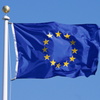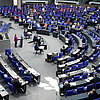Strengthening Diversity – Promoting Health
A total of 21.2 million people in Germany have a migration history (Destatis 2024). These include immigrants, descendants of immigrants and people who saw no other option than to flee their home countries. We live in a diverse society. Health equity is a key component of integration and effectively ensures participation.
Migration and integration
The demographic changes in Germany, the large number of people with a migration history who have been living in Germany for many years and the intensive skilled labour recruitment drive have also led directly to various policy-making tasks for the Federal Ministry of Health. These include, for instance:
- Analysing and assessing health policy issues in connection with the healthcare of people with migration histories
- Supporting national, European and international political processes and legislative proposals on migration and integration
- Shaping the Federal Government’s integration policy with regard to health
- Developing and funding pilot projects covering the entire thematic spectrum of the Federal Ministry of Health
- Developing and participating in the Federal Government’s measures to combat racism and discrimination against people with migration histories in healthcare
Target group-specific communication and information
People who need medical or care-related assistance can count on Germany’s healthcare system. Reliable and efficient, it ensures that all people receive the treatment and support they need.
Multilingual information materials facilitate access to healthcare and strengthen health literacy among people with migration histories. Therefore, providing and developing target group-specific information on the German healthcare system is a key priority for the Federal Ministry of Health.
Examples of pilot projects
- Portal „Migration und Gesundheit“: A multilingual portal with information on the healthcare system in Germany in general as well as various health related topics
- Digitaler Wegweiser: „Gesundheit für alle“
- Pflege-Ratgeber in türkischer Sprache
- HIV/AIDS-Informationsbroschüren für arabisch- und darisprachige Jugendliche
Transcultural opening
In healthcare and long-term care, people from very different cultures meet in sensitive situations. The Federal Ministry of Health strengthens culture-sensitive communication in outpatient and inpatient settings by developing and implementing measures to promote transcultural skills, for instance in long-term care, hospice care and palliative care. This includes identifying and analysing discrimination risks within the healthcare system.
Examples of pilot projects:
- „Sprache öffnet Türen“- Mehrdimensionales Projektvorhaben zur Implementierung von Sprachmittlung im Gesundheitswesen („SIMPLE“)
- Transkulturelle Öffnung in der Pflege (TÖP) – Rassismussensibilisierung durch Dialog, Reflexion und Transformation
- "Vielfalt Pflegen" (Nursing diversity) eLearning platform to promote transcultural care skills
- Brückenbauer*innen in der Hospiz- und Palliativversorgung
Integration into the health and care workforce
Due to the demographic trends in Germany, the need for health and care professionals is also growing. Increasing the number of immigrating professionals and sustainably integrating people with migration histories into the health and care workforce are among the most important political tasks. The Federal Ministry of Health is therefore piloting projects on professional, linguistic and sociocultural integration. These also include instruments to convey quality-assuring training and occupation-related language skills.
Examples of pilot projects
Prevention
It is in the Federal Ministry of Health’s interests to improve access to preventive and health promotion services for people with migration histories. This aims to help prevent health risks and boost health awareness. The Federal Ministry of Health is developing and funding projects to strengthen primary and secondary prevention, for instance in the areas of vaccination, sports and exercise or mental health.
Examples of pilot projects
- Fit und verbunden gegen Einsamkeit
- Gemeinsam bewegen – gesund leben im Alter (GeniAl)
- Präventionsbus der Charité Berlin – Modellprojekt zur Impfprävention bei Jugendlichen
- Providing Online Resource and Trauma Assessment for Refugees (PORTA)
- Wirksamkeitsstudie zum Einsatz von muttersprachlichen Counselern zur Förderung der Resilienz von Geflüchteten/Migrantinnen und Migranten
Improving the body of data
Good healthcare for everyone is only possible when specific healthcare needs are determined in concrete terms. A meaningful body of data on the health of people with migration histories allows for better identification of needs and, as a result, target group-specific optimisation. The Federal Ministry of Health is therefore promoting various research projects in order to improve the data basis upon which public health decisions are made.
Cooperation with organisations and associations
Migrant organisations are important stakeholders within civil society and form a bridge to people with migration histories thanks to their specific access. With their work in various areas of society, they contribute significantly towards integration. The Federal Ministry of Health is working together cooperatively with various national and international organisations and associations and participates in various exchange formats and bodies to jointly develop and implement measures to eliminate barriers to accessing healthcare, for instance.
































